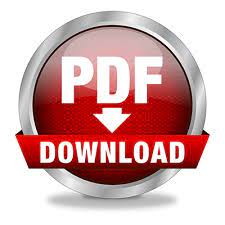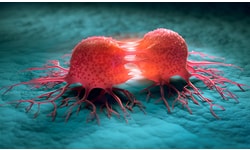Carcinogenic Agents (Mutations & Mutagens)
A carcinogen is a substance that promotes the development of cancer, a radionuclide, or radiation. This is because it can damage the genome and interfere with the cell's metabolic processes. Some radioactive substances are thought to be carcinogenic, but their carcinogenic effects are due to the radiation they emit, such as gamma rays and alpha particles .Common examples of non-radioactive carcinogens are inhaled asbestos, certain dioxins, and cigarette smoke. Publicly relevant carcinogens are generally associated with synthetic chemicals, but can occur with both natural and synthetic substances as well. Carcinogens are not always immediately toxic. Therefore, those effects can be insidious.
Related Associations and Societies
Swedish Society for Microbiology ¸German Society of Hygiene and Microbiology¸ Italian Society for Microbiology¸ Spanish Society for Microbiology ¸Viruses: National Multiple Sclerosis Society¸ Infectious Diseases Society of America¸Swiss Society for Infectious Disease.
Related Conference of Carcinogenic Agents (Mutations & Mutagens)
8th International Conference on Clinical Microbiology, Virology and Infectious Diseases
21st International Conference on Microbial Interactions & Microbial Ecology
12th International Congress on Trauma, Critical Care and Emergency Medicine
21st International Conference on Virology, Emerging Diseases & vaccines
Carcinogenic Agents (Mutations & Mutagens) Conference Speakers
Recommended Sessions
- Advanced Research in Clinical Microbiology
- Agricultural Microbiology
- Antimicrobial Resistance
- Bioinformatics, Genomics and Proteomics
- Biotechnology and Synthetic Biology
- Carcinogenic Agents (Mutations & Mutagens)
- Clinical Microbiology
- Comorbidities and Infectious Diseases
- Corona Virus (COVID19)
- Emerging and Re-emerging Infectious Diseases
- Food Microbiology
- Food Processing and Packaging Technology
- Genetic Recombination
- Host-Pathogen Interactions
- Laboratory Diagnosis of Infectious Diseases
- Leading Causes of Death Globally
- Microbial Evolution
- Microbial Genetics
- Microbiome
- Modes of Transmission-Routes of Infections
- Molecular Biology
- Molecular Cloning
- Normal Flora of Human Body
- Soil Microbiology
- Stem Cell Technology
Related Journals
Are you interested in
- Acute Care Surgery - TRAUMA 2026 (France)
- Advances in Anti-Seizure Medications - EPILEPSY SUMMIT 2026 (France)
- Advances in Epilepsy Research and Treatment - EPILEPSY SUMMIT 2026 (France)
- Advances in Mood Stabilizers for Bipolar Disorder - EPILEPSY SUMMIT 2026 (France)
- Agricultural Microbiology & Soil Health - Applied-Microbiology-2026 (Germany)
- Agriculture & Forest Microbiology - Microbial Interactions 2026 (France)
- Antimicrobial Agents & Resistance - Microbial Interactions 2026 (France)
- Antimicrobial Resistance Challenges - Microbiology 2026 (France)
- Antimicrobials, Resistance & Novel Therapeutics - Applied-Microbiology-2026 (Germany)
- Applied and Environmental Science - Microbial Interactions 2026 (France)
- Aquatic & Marine Microbiology - Microbial Interactions 2026 (France)
- Bacterial Genetics & Genomics - Microbiology 2026 (France)
- Biocontrol, Biofertilizers & Plant-Microbe Interactions - Applied-Microbiology-2026 (Germany)
- Bioenergy, Biofuels & Sustainable Production - Applied-Microbiology-2026 (Germany)
- Bipolar Disorder and Suicidality: Risk Assessment and Management - EPILEPSY SUMMIT 2026 (France)
- Bipolar Disorder: Current Understanding and Future Directions - EPILEPSY SUMMIT 2026 (France)
- Bipolar Disorder: New Diagnostic Criteria and Tools - EPILEPSY SUMMIT 2026 (France)
- Burns and Thermal Injuries - TRAUMA 2026 (France)
- Cardiac and Vascular Emergencies - TRAUMA 2026 (France)
- Cellular Microbiology & Systems Microbiology - Microbial Interactions 2026 (France)
- Clinical & Diagnostic Microbiology - Microbiology 2026 (France)
- Clinical and Public Health Microbiology - Microbial Interactions 2026 (France)
- Clinical Microbiology & Infectious Diseases - Applied-Microbiology-2026 (Germany)
- Cognitive and Behavioral Effects of Epilepsy - EPILEPSY SUMMIT 2026 (France)
- Critical Care Medicine - TRAUMA 2026 (France)
- Drug-Resistant Epilepsy: Current Challenges and Solutions - EPILEPSY SUMMIT 2026 (France)
- Emergency Nursing and Trauma Care - TRAUMA 2026 (France)
- Emerging Infectious Diseases in Critical Care - TRAUMA 2026 (France)
- Environmental & Soil Microbiology - Microbiology 2026 (France)
- Environmental Microbiology & Bioremediation - Applied-Microbiology-2026 (Germany)
- Epilepsy in Pediatrics: Management and Outcomes - EPILEPSY SUMMIT 2026 (France)
- Epilepsy Surgery: Latest Innovations and Techniques - EPILEPSY SUMMIT 2026 (France)
- Ethics, Legal, and Policy Issues in Critical Care - TRAUMA 2026 (France)
- Exploring Epilepsy and Mental Health Comorbidities - EPILEPSY SUMMIT 2026 (France)
- Food & Marine Microbiology - Microbial Interactions 2026 (France)
- Food & Agricultural Microbiology - Microbiology 2026 (France)
- Food & Dairy Microbiology Innovations - Applied-Microbiology-2026 (Germany)
- Future Trends in Microbial Research - Microbiology 2026 (France)
- Genetic and Epigenetic Factors in Bipolar Disorder - EPILEPSY SUMMIT 2026 (France)
- Geriatric Trauma and Emergency Care - TRAUMA 2026 (France)
- Global Health and Trauma Care - TRAUMA 2026 (France)
- Host-Pathogen Interaction - Microbial Interactions 2026 (France)
- Immunology & Infectious Diseases - Microbiology 2026 (France)
- Industrial Fermentation & Bioprocessing - Applied-Microbiology-2026 (Germany)
- Industrial Microbial Technologies - Microbiology 2026 (France)
- Industrial Microbiology, Microbial Biotechnology and Future Bioindustries - Microbial Interactions 2026 (France)
- Innovations and Technology in Trauma and Critical Care - TRAUMA 2026 (France)
- Integrative Approaches in Managing Epilepsy and Bipolar Disorder - EPILEPSY SUMMIT 2026 (France)
- Microbial Biodegradation - Microbial Interactions 2026 (France)
- Microbial Bioengineering Tools - Microbiology 2026 (France)
- Microbial Biotechnology Innovations - Microbiology 2026 (France)
- Microbial Community - Microbial Interactions 2026 (France)
- Microbial Diseases - Microbial Interactions 2026 (France)
- Microbial Diversity & Evolution - Microbiology 2026 (France)
- Microbial Ecology and Evolution - Microbial Interactions 2026 (France)
- Microbial Enzymes & Biocatalysis - Applied-Microbiology-2026 (Germany)
- Microbial Genomics & Functional Biology - Applied-Microbiology-2026 (Germany)
- Microbial Interactions - Microbial Interactions 2026 (France)
- Microbial Pathogenesis - Microbial Interactions 2026 (France)
- Microbiology & Infectious Diseases - Microbial Interactions 2026 (France)
- Microbiome Science & Applications - Microbiology 2026 (France)
- Microbiome Science & Therapeutic Modulation - Applied-Microbiology-2026 (Germany)
- Military and Combat Trauma - TRAUMA 2026 (France)
- Molecular Microbiology - Microbial Interactions 2026 (France)
- Mycology, Fungal Pathogens and Associated Diseases - Microbial Interactions 2026 (France)
- Neuroimaging in Bipolar Disorder Research - EPILEPSY SUMMIT 2026 (France)
- Neuroimaging Techniques in Epilepsy - EPILEPSY SUMMIT 2026 (France)
- Neurological Emergencies and Trauma - TRAUMA 2026 (France)
- Novel Biomarkers in Epilepsy Diagnosis - EPILEPSY SUMMIT 2026 (France)
- Pathogen Detection & Advanced Diagnostics - Applied-Microbiology-2026 (Germany)
- Pathogens & Host Interactions - Microbiology 2026 (France)
- Pediatric and Neonatal Emergency Care - TRAUMA 2026 (France)
- Pharmacological Treatments for Bipolar Disorder - EPILEPSY SUMMIT 2026 (France)
- Plant Pathology & Microbiology - Microbial Interactions 2026 (France)
- Plant-Soil Microbe Interactions - Microbial Interactions 2026 (France)
- Probiotics, Prebiotics & Functional Foods - Applied-Microbiology-2026 (Germany)
- Psychosocial Aspects of Trauma and Critical Care - TRAUMA 2026 (France)
- Psychosocial Interventions in Bipolar Disorder - EPILEPSY SUMMIT 2026 (France)
- Resuscitation and Emergency Response - TRAUMA 2026 (France)
- Soil microbiology & Water Microbiology - Microbial Interactions 2026 (France)
- Synthetic & Metabolic Engineering - Applied-Microbiology-2026 (Germany)
- Synthetic & Systems Microbiology - Microbiology 2026 (France)
- The Impact of Bipolar Disorder on Quality of Life - EPILEPSY SUMMIT 2026 (France)
- The Role of Genetics in Epilepsy - EPILEPSY SUMMIT 2026 (France)
- Trauma and Emergency Care Research - TRAUMA 2026 (France)
- Trauma and Emergency Medicine - TRAUMA 2026 (France)
- Trauma and Emergency Medicine Education - TRAUMA 2026 (France)
- Trauma Imaging and Diagnostics - TRAUMA 2026 (France)
- Trauma Rehabilitation and Recovery - TRAUMA 2026 (France)
- Virology & Viral Pathogenesis - Microbiology 2026 (France)
- Virology, Viral Technologies & Applications - Applied-Microbiology-2026 (Germany)


